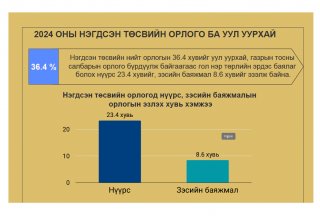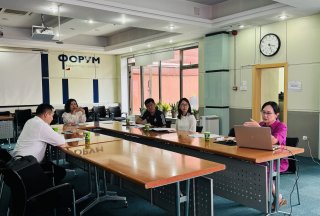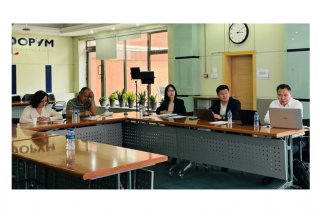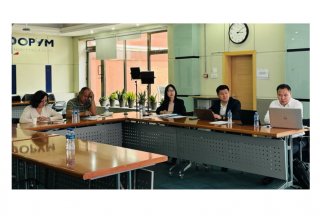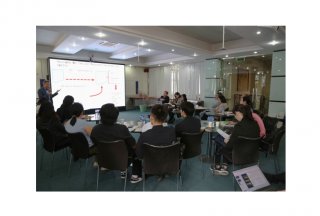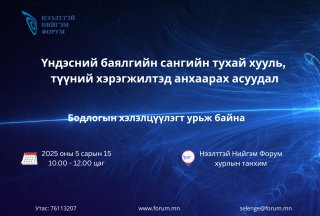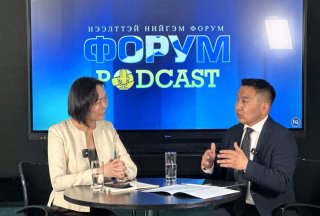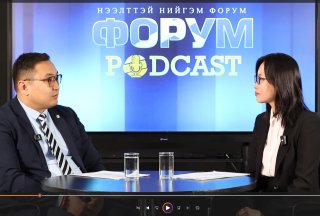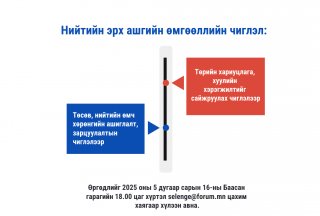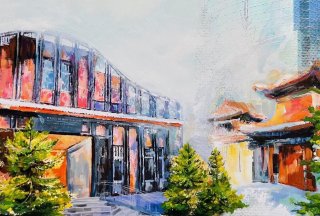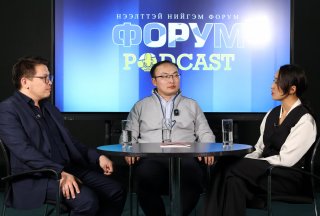"Now, or We Stop," Says Rio Tinto (October 05, 2007)
Written by B.Bulgamaa UB POST
THE present autumn session of Parliament is to decide the fate of two draft agreements in the minerals sector that will have far-reaching impacts on the country’s economy. The drafts of the investment agreement of Mongolia’s biggest two deposits, Oyu tolgoi and Tavan tolgoi, were finalized after about five years of negotiation that polarized the public opinion, and now face their final test in a Parliament where the ruling coalition has a more than safe majority.
The private companies that are hoping Parliament will give the go-ahead to the Mongolian Government to sign the agreements, are keeping a close watch on the developments. “We hope that the investment agreement would be signed by the end of this year. In case the agreement is not approved in the current session of Parliament, we will have no choice but to stop the project,” said Sam Riggal, Rio Tinto’s General Manager of commercial affairs. “As an international company, we have many projects in different parts of the world that keep us busy, and we cannot wait for another five years for the Mongolian Parliament to ratify an agreement.”
Sodnom wanted the royalty tax to be raised from the present 5 percent to seven. This is acceptable in other countries, so investors cannot object to this in Mongolia. He did not favor the idea that a company should get away with paying no windfall profits tax if it built a smelting plant. This smelt of a deal, he said, one the Mongolian Government should spurn as it can build three smelting plants with its own resources, at Erdenet, Oyu tolgoi and Tavan tolgoi. Former Prime Minister D.Byambasuren then said that the copper concentrate mined at Erdenet contained not just copper, but silver and gold, too. This has been known since tests were conducted in 1980. These had revealed that one ton of copper concentrate contained four grams gold. The amount of silver was enough to indicate that in those days, when all the copper was sent to Russia, 60 t ons of silver was exported free. A case was made a few times and half that amount was returned to Mongolian, but this never became a regular practice. He wondered what the situation was now.
Members of Parliament’s standing committee last month were critical of several provisions in the draft of the investment agreement for the Oyu tolgoi project. They decided to set up a working group to prepare a new draft. It is not clear whether a new draft will be made ready for Parliament to discuss and how much really new material this will contain. Ivanhoe Mines Mongolia Inc., responsible for the project once an agreement is signed (IIM), will then have to accept or reject the terms of the agreement.
The standing committee felt the draft broke several laws of the country, and offered certain advantages to the investors that went against the country’s interests. One of them related to exempting the company from paying the windfall profits tax, settling instead for a smelting plant it will build.
Some time ago Open Society Forum organized a public discussion on the Oyu tolgoi project. It asked former Prime Ministers of the country, Parliament members, state and non state organizations’ representatives, journalists, and mineral specialists to discuss the draft agreement in detail. This was part of the NGO’s ongoing program of arranging open discussions on policy issues in Mongolian politics and society, in sectors like mining, the economy, investment agreements, agriculture and development.
One of the speakers was D.Sodnom, a former Prime Minister. His comments, titled “How to ensure efficient development of mineral deposits” drew special attention as he is also a State Honored Economist, and is not in partisan politics.
Sodnom recommended some immediate changes to the Mineral Resources Law and the Law on Tax. He also thought the Oyu tolgoi draft violates mandatory provisions of the windfall tax law.
He wondered if issues pertaining to strategic deposits in the mineral resources law had been left deliberately vague. This absence of clarity could very well harm the State’s interests in both the short and the long runs.
Sodnom did not favor the idea that the State should own more than 34 percent share in a mining enterprise. This would unnecessarily add to the risk factor. His calculation was that if the Windfall Profits Tax was properly implemented, the State, even when owning 34 percent of the operations, would end up with 54 percent of the profit. He was happy with foreign investors owning 51 percent of a company, provided good management was guaranteed and modern technology used.
The government should pursue a policy of optimum economic efficiency, and not just be content with supplying raw material to more powerful countries. An independent and sovereign Mongolia was not any country’s satellite, he said.
Both Ivanhoe Mines Mongolia Inc and Rio Tinto have said they would walk away from Oyu tolgoi if they had to pay windfall tax.
Other former Prime Ministers who spoke in the series were Byambasuren himself on “The current state structure of Mongolia and main guidelines for its improvement”, Sh.Gungaadorj on “Some issues of rural and agricultural development”, P.Jasrai on “Structure and development of the Mongolian economy in the near future”, and R.Amarjargal on “North Eastern Asian Free Trade Contract and Mongolia”.



 Naranchuluun
Naranchuluun 